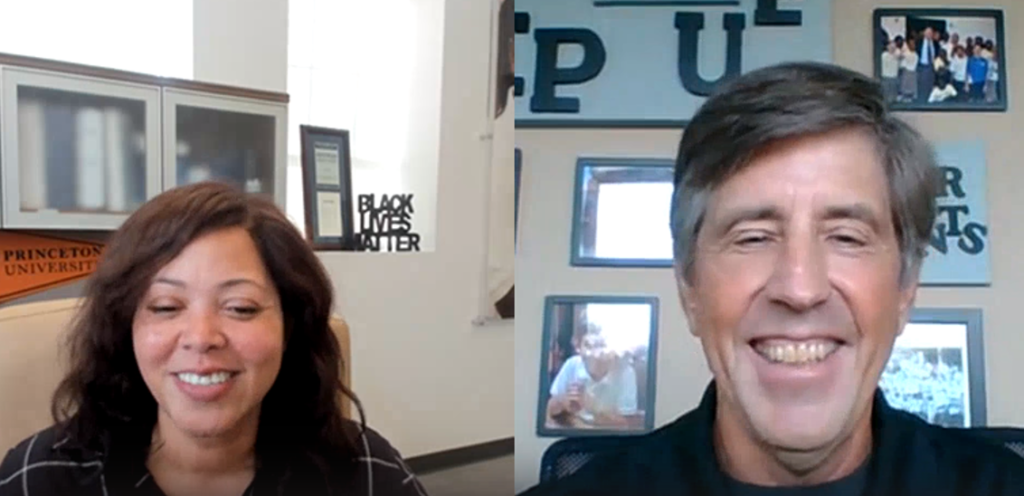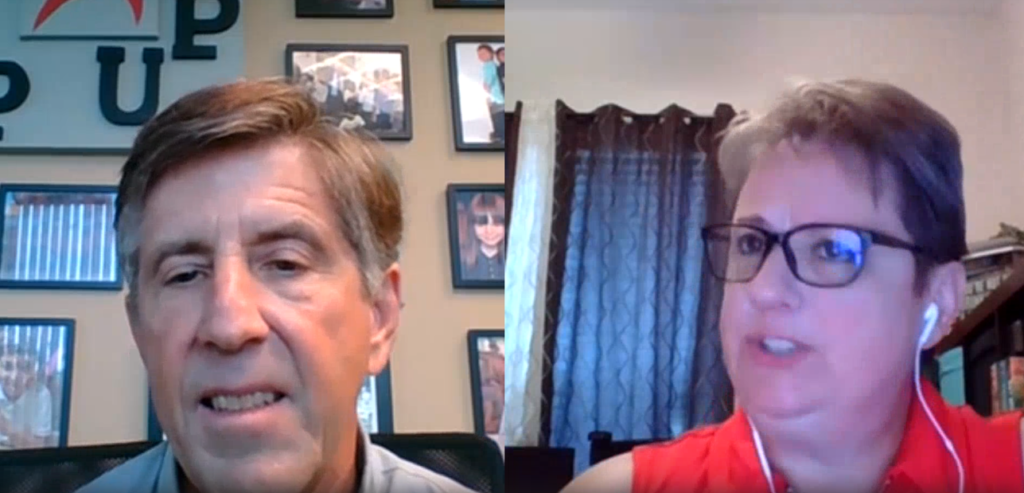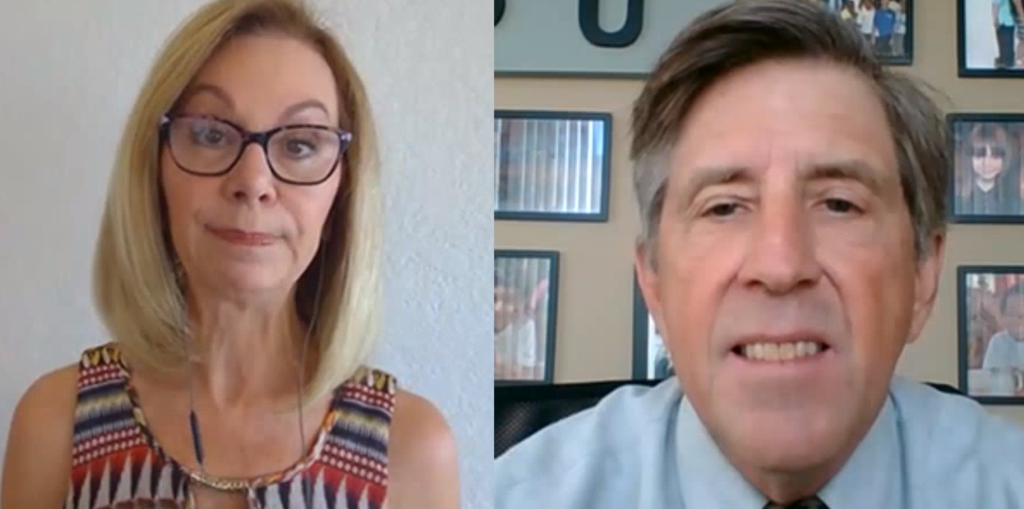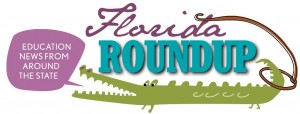For years, Florida’s online schools have grappled with a logistical challenge: Getting their students to the campuses of brick-and-mortar schools, operated by school districts, to take their standardized tests.
Kevin Chavous, the president of the online learning company Stride, laid out the complications several years ago:
Imagine that a school district notifies parents that they must take their child to a location 60 miles from home for testing. Transportation will not be provided; parents are responsible for ensuring that their children arrive every day at their assigned testing site for up to a week, until all exams are complete. Families with multiple children may need to travel every day for two or three consecutive weeks, depending on the kids’ grade levels and the tests they must take. This may require making hotel arrangements and requesting leave from employers to ensure their child is present each day.
This scenario is, of course, absurd and would never happen in a regular school district. Yet it is reality for students in full-time, statewide online public schools.
One consequence of these and other mundane hurdles has been a raft of “incomplete” A-F grades whenever the state releases its annual school accountability reports.
For the 2022-23 school year, 20 of the 32 public schools that received incomplete grades were online learning institutions. The previous year, online schools accounted for 29 of 40 incompletes.
Virtual students have a harder time showing up for assessments proctored in person, or even knowing where to go or whom to ask. As a result, online schools are more likely to have fewer than 95% of their eligible students submitting test results, which can lead to an incomplete letter grade.
New legislation passed this year could help. A provision of HB 1285, a wide-ranging education bill, would set specific expectations for districts and online schools:
It is the responsibility of the approved virtual instruction program provider or virtual charter school to provide a list of students to be administered statewide assessments and progress monitoring to the school district, including the students' names, Florida Education Identifiers, grade levels, assessments and progress monitoring to be administered, and contact information. Unless an alternative testing site is mutually agreed to by the approved virtual instruction program provider or virtual charter school and the school district, or as specified in the contract under s. 1008.24, all assessments and progress monitoring must be taken at the school to which the student would be assigned according to district school board attendance policies. A school district must provide the student with access to the school's or district's testing facilities and provide the student with the date and time of the administration of each assessment and progress monitoring.
That might not fix all the logistical hassles described by Chavous, but it could help iron out some more run-of-the-mill coordination challenges with getting virtual students into physical campuses for testing.
Tristan Drummond was born 10 weeks premature with one kidney and enough genetic disorders that doctors gave him a 50/50 chance to turn 1.
He had his first surgery when he was 2 days old and has far exceeded that dire prediction. He will turn 12 in June.
But his lungs are filled with scar tissue, and his left lung tends to collapse. He’s susceptible to colds that lead to pneumonia, and that leads to more scar tissue on his lungs.
Also, Tristan is on the autism spectrum.
“The cherry on top,” said his mom, Danielle.
Tristan is homeschooled and receives the state's Family Empowerment Scholarship for students with Unique Abilities. Unless he’s going to a doctor’s appointment or the grocery store with his mom, he spends nearly all his time inside the family’s home in Fort Lauderdale, Florida. Yet Tristan’s world virtually spans the globe.
“The scholarship has allowed him to actually have a life,” Danielle said. “It's hard for kids like him because they don't have a lot of outlets. They need those relationships with other kids, and that is a safe way for him to do it. He has friends that he plays with online.”
The scholarship operates as an Education Savings Account (ESA), which allows Tristan’s parents to spend its funds on curriculum and other approved education-related expenses. Art supplies have topped that list during this school year.
The ESA also allows for electronics, which have shaped Tristan’s education and enabled him to have a social circle of about 50 friends whom he’s never met physically yet plays with nearly every day.
Tristan was born with VACTERL, which stands for vertebral defects, anal atresia, cardiac defects, tracheo-esophageal fistula, renal anomalies, and limb abnormalities. Not everyone with VACTERL has all six conditions. Tristan has three.
“It's a nice little combo of rare diseases that just sort of all landed on one kid,” Danielle said.
He was born without a section of his esophagus and a tethered spinal cord.
“He had eight surgeries before his fifth birthday and so many procedures I’ve lost count,” Danielle said.
Tristan had back surgery when he was 6 to correct his spinal cord. That’s when Danielle and her husband, Ashley, used the ESA for a large-screen TV and virtual reality equipment to help Tristan relearn how to walk. They quickly realized the benefits the ESA could have on Tristan’s life.
Virtual reality has been used for nearly 25 years to help people on the autism spectrum learn to communicate and develop job skills. It has helped Tristan improve his cognitive and gross motor skills through occupational and physical therapy. It helped him increase his attention span and developed his hand-eye coordination and core strength. He’s learned how to count and how to exercise.
It has also taken him around the world.
Tristan landed on the moon with the Apollo 11 crew, swam with sharks off the Great Barrier Reef in Australia, and visited Epcot Center and the Smithsonian Institute in Washington, D.C.
He’s studied astrophysics and Van Gough and knows everything about the tardigrade, an eight-legged micro-animal that lives in water.
The online game Roblox makes Tristan aware of how his body moves because it tracks a player’s body, eye, and facial expressions. He learned to work with teammates by playing the video game Beat Saber. Gorilla Tag allows Tristan to play tag with his friends, something he could never do in the real world without the risk of getting sick.
Tristan had trouble sleeping at night until Danielle came across Liminal VR, which stimulates different parts of the brain.
“He does his five minutes on there, takes his bath, then he goes to sleep and doesn't have a problem,” Danielle said.
With Minecraft, Tristan has built an entire neighborhood, complete with houses and people living in those houses. He makes videos with his Stickbots and Godzilla figurines.
Everything is relevant to her son’s education, Danielle said. Tristan is learning to code and make videos. He’s learning science and math. Some might see it as unorthodox.
“But he doesn’t fit in a box,” Danielle said.
Tristan responds to electronics. To not have that would be a lost opportunity when it comes to his education.
“This is where it changes into something that can be usable for a career later,” Danielle said. “For kids like Tristan, technology is going to be where their careers, if they have them, are going to be because they have an aptitude for it.
“You hope for him to have a productive life and hopefully be a contributing member of society, and the future of our society is electronic.”
 On this episode, Tuthill talks with the leader of a cohort of 16 charter schools in the Washington, D.C., area that primarily educate families of color. The two discuss how Friendship, which serves more than 4,500 students in prekindergarten through 12th grade, has adapted its education delivery in the wake of the global pandemic.
On this episode, Tuthill talks with the leader of a cohort of 16 charter schools in the Washington, D.C., area that primarily educate families of color. The two discuss how Friendship, which serves more than 4,500 students in prekindergarten through 12th grade, has adapted its education delivery in the wake of the global pandemic.
Brantley observes that one of her biggest surprises has been feedback from families of students with special needs who say their children are less distracted, learning more, and getting better personalized feedback from their teachers in digital or hybrid learning environments. She discusses with Tuthill the unbundling of education services to provide families with more flexibility and options, the growing trend of families creating small “pod” schools in their homes, and the necessity of providing internet access to all children to ensure educational equity.
"Adults need to think differently, and they need to catch up with kids … (Families in pods) are getting an amazing education. But that education is owed to all our children regardless of their parents’ resources. We need to figure out how we're going to get it delivered to them."
EPISODE DETAILS:
· What Friendship has learned over the past two semesters of innovation and how it plans to improve for the future
· Creating a robust professional development system for Friendship’s teachers and staff
· Strengths of the digital environment and how technological advancements can personalize education
· The benefits of unbundling education services and the ways entrenched systems may react and adapt
 On this episode, Tuthill speaks with JoAnne Glenn, one of the nation’s top online learning leaders. In addition to being Pasco’s 2020 Principal of the Year, Glenn earned one of three Digital Principal of the Year awards from the National Association of Secondary School Principals. She is one of the founders of Pasco eSchool, which offers full- and part-time K-12 digital instruction. Over the past 12 years, the school’s mastery-based model has become a model for digital learning.
On this episode, Tuthill speaks with JoAnne Glenn, one of the nation’s top online learning leaders. In addition to being Pasco’s 2020 Principal of the Year, Glenn earned one of three Digital Principal of the Year awards from the National Association of Secondary School Principals. She is one of the founders of Pasco eSchool, which offers full- and part-time K-12 digital instruction. Over the past 12 years, the school’s mastery-based model has become a model for digital learning.
Tuthill and Glenn discuss Pasco eSchool’s advantage during the COVID-19 pandemic and how the platform will allow for flexibility of blended learning when school resumes in a few weeks. They also discuss issues of inequity and the “digital divide,” noting there are areas of Pasco County still lacking access to high speed internet.
"When families are looking outside the school district for their core instruction, it does not mean we don't have things they may like, we just have to figure out ways to make that available."
EPISODE DETAILS:
What the Pasco County School District is likely to look like in five years
Lessons learned in the spring and Pasco’s reopening models
Pasco’s “franchise” relationship with Florida Virtual School – using its content and platform with district teachers
How Pasco can unbundle its services and offer flexibility to families within the district and beyond
LINKS MENTIONED:
Pasco eSchool leader named top national 'digital principal'
Pasco eSchool leader named county Principal of the Year
 In this episode, Step Up For Students President Doug Tuthill talks with Julie Young, vice president of education outreach and student services at Arizona State University and managing director of Arizona State University’s Prep Academy and ASU Prep Digital. Young, who has been celebrated as an education disruptor for nearly three decades, was founding CEO and president of Florida Virtual School, the world’s first statewide virtual school and one of the nation’s largest K-12 online educator providers.
In this episode, Step Up For Students President Doug Tuthill talks with Julie Young, vice president of education outreach and student services at Arizona State University and managing director of Arizona State University’s Prep Academy and ASU Prep Digital. Young, who has been celebrated as an education disruptor for nearly three decades, was founding CEO and president of Florida Virtual School, the world’s first statewide virtual school and one of the nation’s largest K-12 online educator providers.
The longtime friends share a fascinating discussion about the future of public education in the wake of a global pandemic. Both believe the shifts that have occurred have accelerated change, making competency-based education the “new normal” by default. They also discuss the crucial role of virtual reality technology as it relates to the competency-based model. Both Young and Tuthill remember teaching in classrooms 15 minutes from the beach populated by students who had never been there and discuss how virtual reality can end such inequities.
Young: “We’re not going back to the old normal, and we’re creating our new normal. And our new normal will be to offer families choices.”
EPISODE DETAILS:
· What we can learn from the sudden shift to digital learning and how parents took control in structuring their learning and working days
· The empowerment that occurs when parents plan curriculum and how COVID-19 has allowed them to watch how their kids learn
· How virtual reality can level the equity playing field, giving more children greater and personalized access to understanding what the world is like
· How assessments will change and combine, creating an experience based on the needs of each learner
· How the role of teachers will shift in this new environment
LINKS MENTIONED:
ASU Prep Digital – Two-minute Course Tours
 A key contributor to understanding innovation in the modern economy died last week at age 67.
A key contributor to understanding innovation in the modern economy died last week at age 67.
Harvard Business School’s Clayton Christensen laid the groundwork for our understanding of disruptive innovation in technology and business, a concept that has been called the most influential business idea of the early 21st century – and one that should matter to people who want to improve our education system.
The theory explains the phenomenon by which an innovation transforms an existing market or sector by introducing simplicity, convenience, accessibility and affordability where complication and high cost are status quo. A disruptive innovation is initially formed in a niche market that may appear unattractive or inconsequential to industry insiders, but eventually the new product or idea completely redefines the industry, displacing the dominant technology.
Creators of the dominant technology typically struggle to adjust after developing practices and cultures around previous success. As Christiansen noted: “Organizations cannot disrupt themselves.”
A classic example of disruptive innovation was the rise of the personal computer and its disruption of the mainframe computer market, but it’s hardly the most recent. The ride-sharing industry obviously studied Christensen very carefully in disrupting the transport market.
It did so by developing constituencies (users and drivers) at a breakneck pace. Moreover, ridesharing apps had instant and large advantages over taxi services; costs were lower, the app matched a user with a driver quickly and efficiently, and the payment process was streamlined. Ridesharing disrupted out of the gate because it was a superior service the first time most people tried it. The firms introduced their services as a form of innovation not dependent upon permission – they didn’t ask city or state authorities whether it was okay to ride share, they just started doing it.
Professor Christensen co-authored “Disrupting Class” with Michael B. Horn and Curtis W. Johnson in 2006, laying out an intriguing case that digital learning may be a disruptive technology. It may yet prove to be, although it remains unclear as to what form that disruption might take. While disruptive innovation describes a market process, K-12 continues to be dominated by politics.
While growing in frequency, digital learning still seems to be a more accessible, although not yet a clearly superior, product. But stay tuned: The day may come when innovators develop school models to strengthen the advantages of this approach, ameliorating the current shortcomings. Innovation, alas, is not a trained dog that dutifully obeys our commands on our desired schedules. As Matthew Ridley laid out convincingly in his book “The Rational Optimist: How Prosperity Evolves,” technological advances occur in unpredictable ways driven in large part by necessity.
Christensen revolutionized thinking about business and management regardless of whether digital learning proves to be a disruptive technology in our lifetimes. Better still, he gave a talk to students at the Harvard Business School titled “How Will You Measure Your Life?” that constitutes some of the best advice for living a happy and productive life you are ever likely to read.
Christensen’s career had an enormous impact, but the example of his life could in fact prove greater still.
You can read some of Christensen’s seminal pieces for the Harvard Business Review here.
 Class size. A key lawmaker wants to examine school districts' use of a choice loophole in the state's class size law. Tampa Bay Times. Sentinel School Zone. redefinED.
Class size. A key lawmaker wants to examine school districts' use of a choice loophole in the state's class size law. Tampa Bay Times. Sentinel School Zone. redefinED.
Digital learning. EdTech magazine spotlights Miami-Dade in its look at districts with innovative practices.
Facilities. The head of a troubled Houston school facilities department may be in line for a Broward job. Sun-Sentinel.
School grades. Pasco's superintendent wants them suspended this year. Gradebook.
Community schools. A Leon County project faces hiccups. Tallahassee Democrat.
Administration. A principal who mishandled a threat is suspended. Tampa Bay Times. Palm Beach schools might spend hundreds of thousands on a consultant's deep dive into the district. Palm Beach Post.
Editor's note: In the past two legislative sessions, Florida Sen. John Legg, R-Trinity, has pushed for new digital learning funding and policies. As more students head back to school on Monday, the Senate Education Committee chairman says teacher training and professional development need to keep up with the changes happening elsewhere in society.
Today’s kindergarteners are unlike any generation before them. They are true Digital Natives, never knowing a world without tablets and wireless internet access. Digital Natives can dream bigger and brighter, due to advancements everywhere being made daily.
Digital Natives not only require, but demand, merging technology with learning. Portals of knowledge and exploration have literally been at their fingertips their entire lives; the use of devices and apps is instinctual. Our entire education system faces the challenge of empowering students for success, instead of powering down to an era before their birth. (more…)
When groups rank states based on a range of education reforms — school choice, charter schools, teacher quality, transparency, digital learning — it's not surprising Florida lands near the top.
But Indiana continues to eke its way into the no. 1 spot in the Center for Education Reform's "Parent Power Index," despite an ongoing political struggle over education policy in that state.
The latest version of the index, released today, gives Florida high marks for supporting digital learning, giving parents access to school report cards and information about their options, having one of the stronger charter school laws in the country, and embracing private school choice. The main knocks against it include the lack of a "parent trigger" law and the inability to create independent charter school authorizers.
It's worth keeping in mind that giving students more options doesn't lead to improved student performance by itself. Democrats for Education Reform drove that point home in an analysis last year. It lined up advocates' rankings of state charter school laws with charter school performance in each state, and found there wasn't much correlation. "School choice alone does not guarantee success," policy analyst Marianne Lombardo wrote at the time, "but can create the potential for success."
 School choice. School choice can empower educators, Doug Tuthill writes in Education Week. He is the president of Step Up For Students, which co-hosts this blog and employs the author of this post.
School choice. School choice can empower educators, Doug Tuthill writes in Education Week. He is the president of Step Up For Students, which co-hosts this blog and employs the author of this post.
Charter schools. A new debate will track who runs charters. StateImpact.
Testing. The St. Johns school district cuts back on district assessments. St. Augustine Record.
Budgets. The Hillsborough school district has been plugging its budget with reserves, drawing concerns from credit ratings agencies. Tampa Bay Times. Tampa Tribune. The Sarasota Herald-Tribune highlights recent funding cuts to a program for adults with disabilities.
Teacher pay. The Santa Rosa school district and its union remain deadlocked over raises. Pensacola News-Journal.
Campaigns. Leon County Schools Superintendent Jackie Pons kicks off a contest re-election bid. Tallahassee Democrat.
Entrepreneurship. Collier high schools will offer business classes. Naples Daily News.
Technology. Comcast offers low-cost broadband service to low-income students. Palm Beach Post. (more…)